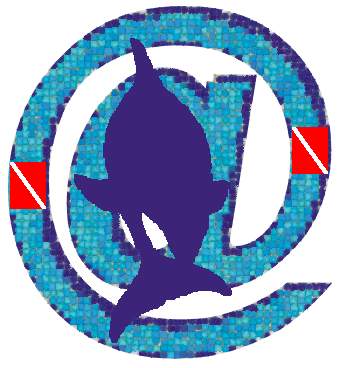 |
Intern@tion@l Dre@m.net |
 |
Intern@tion@l Dre@m.net |
Back from your week-long
island vacation, you're ready for show-and-tell with family and friends. But
great photos and souvenirs aren't the only things you've brought home from the
Caribbean. You also have incapacitating jaw pain that began as an ache after
your second day of diving. You schedule an appointment with your dentist,
wondering if the pain could be related to diving.
Well, not exactly. Medical
problems that divers experience are usually the result of pressure at depth and
the strain of that environment on our bodies. Some disorders that affect us,
however, are caused by the equipment we use. Jaw pain often falls into this
second category, and a regulator or snorkel mouthpiece is usually the culprit.
A 1985 study--reported on
in the Canadian Journal of Applied Sport Sciences--found that in
691 divers examined for disorders of the ear, nose and sinuses, nearly
one-quarter of these conditions were related to the lower jaw and its teeth,
attached muscles and temporomandibular joint.
Temporomandibular
dysfunction (TMD) is a problem that occurs in the temporomandibular (TM) joint
and the muscles around it. Located just forward of the ears, the TM joint opens
and closes the jaw. Pain in this joint is fairly common among divers and
nondivers alike and probably results from one of two causes. The first is
mechanical dysfunction due to congenital deformity or trauma. The second is
muscular pain and spasm secondary to strain or overexertion of the jaw, which
may lead to inflammation of the joint.
The second form of TMD is the condition that usually affects divers, though the first type of TMD may be exacerbated by diving with a conventional mouthpiece. Conventional mouthpieces are thought to contribute to TMD by forcing the jaw into an anatomically awkward position.
Very few people have top and bottom teeth that line up right on top of one another--usually the top teeth overlap the bottom teeth by a small amount. Most regulators force the lower jaw (mandible) slightly forward when placed in the mouth--a position that contributes to TMD.
The human jaw and chewing muscles are poorly designed for the 20- to 60-minute periods of uneven stress often endured during a recreational dive. Multiply this stress by the number of dives many of us make in our all-too-brief vacations, and it's easy to see how the problem is compounded.
A second factor in TMD is the length of the bite plate on most mouthpieces. The jaw is most comfortable with stress distributed across the molars, which are located toward the back of the mouth. Unfortunately, with the exception of a few specialty mouthpieces, the bite plates on regulators and snorkels do not extend back far enough to cover the molars.
Jaw fatigue and pain do not have to ruin a dive. Several companies make mouthpieces that allow for a diver's overbite and have an extended bite platform that includes the molars. One manufacturer--SeaCure--makes a moldable mouthpiece. Moldable mouthpieces may eliminate the discomfort that many divers experience. They are widely available at dive shops and are inexpensive.
Another alternative for
divers who have specific needs--like dentures--or for whom commercially
available mouthpieces aren't comfortable, is a custom-made mouthpiece. Many
dentists and orthodontists can make a mouthpiece to fit just about anyone. This
is a more expensive solution, but well worth it for the avid diver.
For those few divers who have severe TMD or some other problem that prevents them from holding a regulator in their mouth, full-face masks, such as Scubapro's and Interspiro's Divator MK II, may allow them to continue diving. A regulator second stage is built into these full-face masks, eliminating the need to hold anything in your mouth. A full-face mask might be a worthwhile investment for divers unable to get relief from other alternatives.
Besides jaw pain, diving presents other problems for divers with TMD. Because of the position of the TM joint, the local inflammation that occurs with TMD could result in narrowing or blockage of the Eustachian tube and difficulty in clearing or equalizing one's ears. If severe enough, this inflammation could lead to vertigo and disorientation, obviously serious problems if they occur under water.
